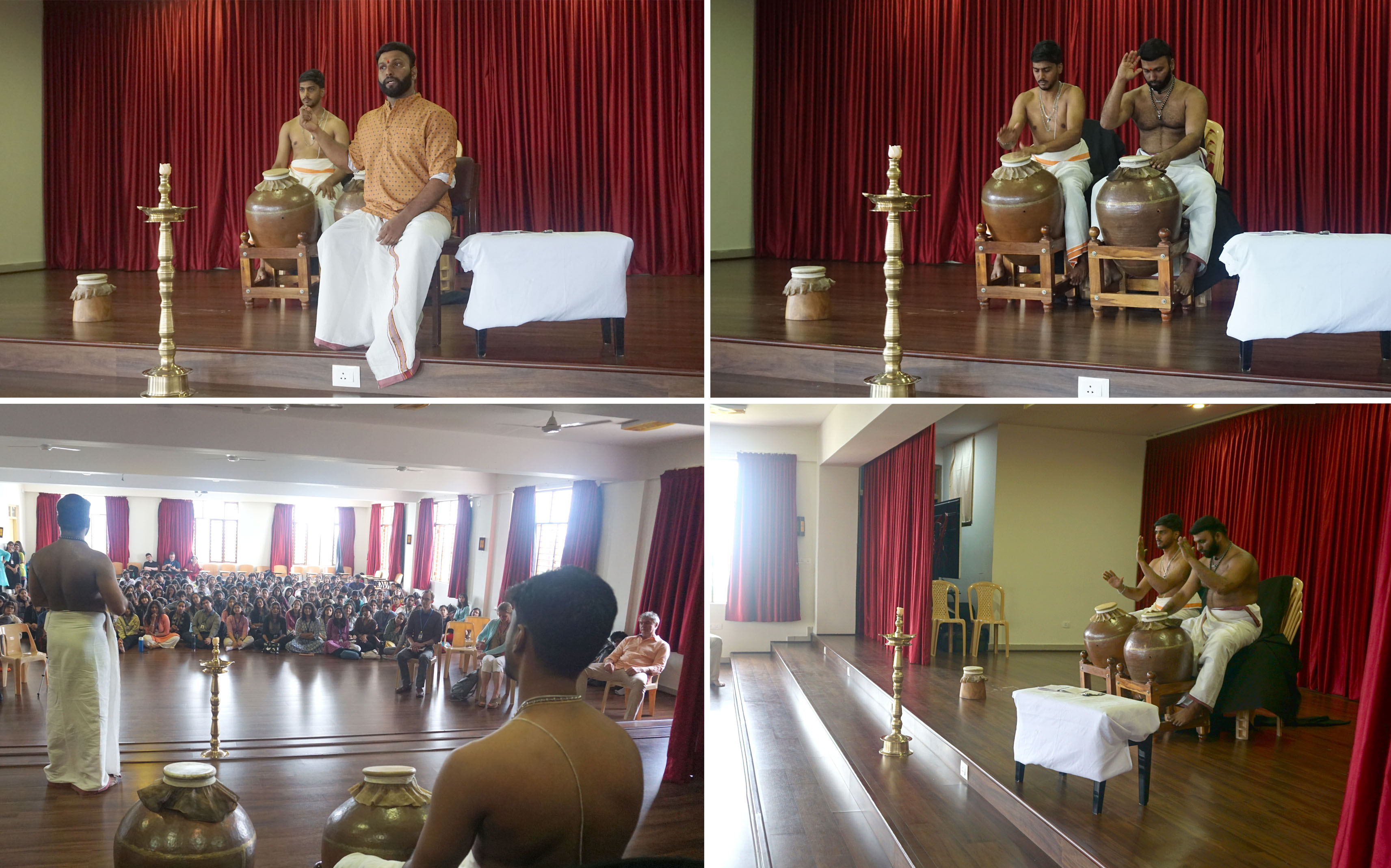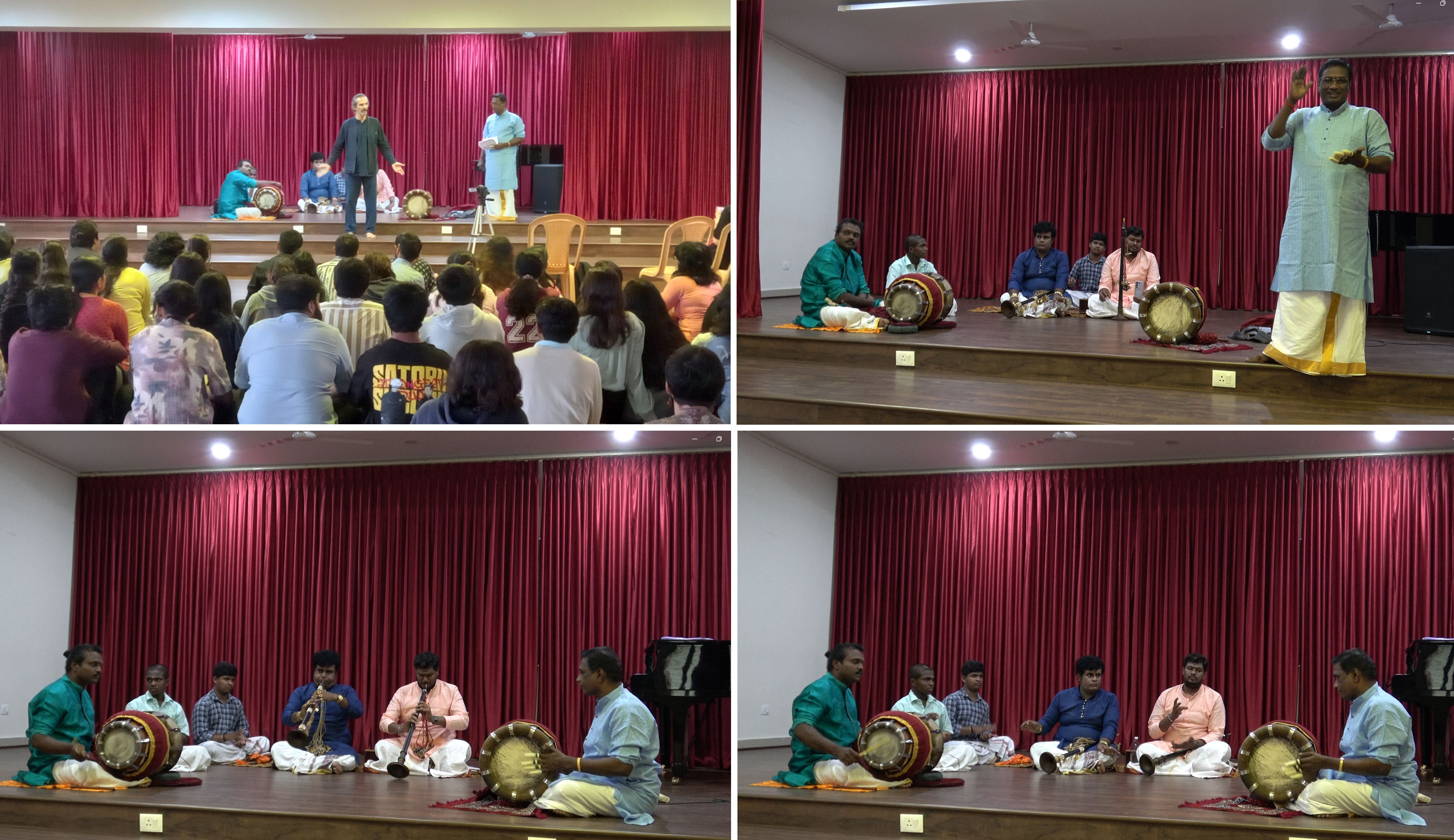Our PhD programs seek to prepare students for careers in the academy, public sector, cultural heritage policy-making, and the music industry.
Key information
Duration
4 years
Attendance mode
Full-time
Location
On campus and on the field
Eligibility and Admission
A Pass in a postgraduate programme in music with a minimum of 55% marks or its equivalent and competency in a musical instrument, including voice. Applicants with a postgraduate degree in any discipline with a minimum of 55% marks with master level competency in a musical instrument, including voice can also apply.
The Department invites PhD Applications for research only in the following areas:
1. Ethnomusicology/Anthropological approaches to Music of South Asia
2. Music Pedagogy
In addition, the Department invites applications for research in the following topics:
1. Drums and drumming of South Asia
2. Temple performers / Temple performing communities
3. Neuroscience applications of Music
4. Phenomenology of Music
Selection Method
a. Proposal
b. Written Test
c. Audition
d. Personal Interview
Those who qualify UGC-NET (including JRF) / UGC-CSIR NET (including JRF) / SLET / GATE/ Teacher fellowship holder or have passed M.Phil Programme shall be exempted from the PhD Entrance Examination. Those candidates take a Research Skill Assessment Test along with their Audition and Personal Interview.
Applicants who are accomplished performers or teachers, may have alternative qualifications, and are encouraged to apply.
The PhD in Ethnomusicology/Anthropological approaches to Music of South Asia
investigates music (sound cultures) in cultural, social, and ritual aspects. While being mainly - but not exclusively - focused on Music of South Asia, our program prepares students in studying music cultures form all over the world, and assists them in approaching music from a variety of perspectives.
Our department invites applications for research in the following topics:
1. Drums and drumming of South Asia
2. Temple performers / Temple performing communities
3. Ritual music
Research methods employed include fieldwork, interview, archive research, recording and filming, transcription and analysis, composition, and performance.


The PhD in Music Pedagogy
Investigates learner-centred approaches and the constituent aspects to music education at any level of scope (preferably vocational, secondary or tertiary levels). The program prepares candidates for teacher education in their preferred area of musical specialisation.
Our department invites applications for research in the following topics:
1. Innovative and sustainable learner-centred approaches for any topic in practical (vocal / instrumental) or classroom music (composition, music theory, history, etc.).
2. Aspects of curriculum design including (but not limited to) immersive delivery; assessment; social justice; motivation and engagement; epistemology; phenomenology; automation; artificial intelligence implementation; ethics; and general music teacher education (and their subcomponents).
Qualitative, quantitative or mixed methods approaches may be adopted in case study approaches. Proposed interventions must have their topics derived from data-driven sources (not a priori). Although mainly focused on western approaches to music education, the pedagogical approaches of any musical background may be undertaken, as long as learner-centred pedagogical methodologies are the main focus of the proposed research.